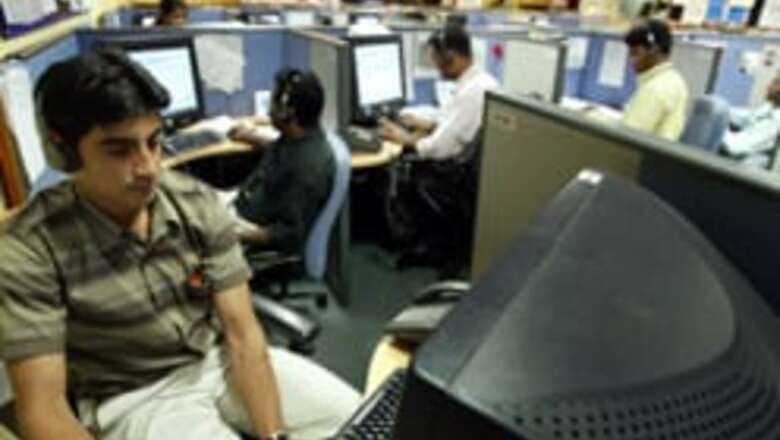
views
Bangalore: The Archbishop of Bangalore does not think the city's legions of call centre workers are going straight to hell.
But he is worried that the young men and women working the phones at night may be engaging in “unsaintly bouts of sex and drug taking”.
While Westerners may vilify India's call centre workers for stealing their jobs, conservatives at home worry the young employees – who mostly work overnight and earn far more than earlier generations – are helping themselves to an alien set of Western values.
"Many have told me they have spiritual problems," said Bernard Moras, the most senior Catholic in a city of more than half-a-million Christians. "Girls will come to me saying, 'I have been friends with a boy. I have misbehaved. I feel perturbed in heart and mind'," he delicately added.
The Indian media has helped fuel the call centres' "Sodom and Gomorrah" reputation with stories of used condoms blocking call centre toilet drains and drug taking during night shifts.
It suggests this behaviour is an inevitable consequence of young people working the night shift to deal with customers in the West, even if it's to discuss staid topics such as the customer's mortgage repayment or why the printer won't print.
Call centres have been a powerful catalyst for a blossoming youth culture in India by giving large numbers of young Indians the financial means to live away from the disapproving glares of their elders and to enjoy cafes, malls and bars that did not exist a generation ago.
Their pay packets of up to Rs 20,000 a month are ten times higher than the national average monthly salary.
‘Headbanging’
An almost impenetrable barricades of parked motorbikes blocks the entrance to Purple Haze, one of the many Bangalore bars brimming at the weekend with outsourcing and IT industry workers.
Inside young men in grungy clothes head-bang to hard rock. Vicky, whooping along to music videos blaring overhead, is one of an estimated 4,15,000 people working in call centres outsourced to India from the West to deal with mundane issues such as utility payments and credit card bills.
"Everything is exaggerated by the media," he said, sipping whisky. "In India, people still have respect for Indian values."
At 26, he is by no means the only guy in the bar who believes it is wrong to have sex before marriage - certainly he says he held off until his wedding a couple of months back.
PAGE_BREAK
Friends Rizvan Khan, 28, and Kshama, 27, agree that though their parents are often out of sight, they are rarely out of mind. "We do look up to our elders. They are the decision makers for us," said Rizvan, wearing a loose brown leather jacket.
Rizvan and Kshama, both journalism graduates, say their call centre - one of India's top five - is a place of diligent career advancement, and hedonists would not like it.
"It's not partying all the time. I mean you're too tired after working all night," said Kshama.
They, like Vickram, believe it is their generation that has struck the perfect balance between the genteel values of Old India and the looser mores common in the West. "India is about 50 years behind," said Rizvan, who admits the tide might be turning.
"In the US, kids have affairs before marrying but here it's seen as a sin. But that's changing now," he added ruefully.
‘Elders are jealous’
Some of his peers are already further along the road to becoming Westernised, preferring to keep their quasi-American accents and mannerisms after their shifts have ended.
Exact numbers are hard to get, but chats with call centre workers suggest a small minority swallow illegal Ecstasy pills and go out raving.
Smoking cannabis during cigarette breaks is fairly common among male employees. And, naturally, not everyone believes that abstaining from premarital sex is sacrosanct.
Still, Pradeep Narayanan, executive director at the hangar-sized 24/7 Customer call centre, is proud of the role such companies are playing in India's liberalisation, even if he says the local press exaggerates worker antics.
He randomly tests his employees for drug use and has fired a few who tested positive. But many are more straight-laced.
A group of workers even formed an in-house Christian gospel band. "I think the people that complain are the older generation that missed out on this," Narayanan said.




















Comments
0 comment